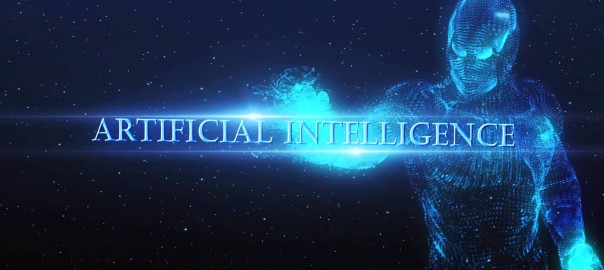Technological innovations expand the possibilities of our world, but they can also shake-up society in a disorienting manner. Periods of major technological advancement are often marked by alienation. While our generation has seen the boon of the Internet, the path to a new world may be paved with Artificial Intelligence.
WHAT IS ARTIFICIAL INTELLIGENCE
Artificial intelligence is defined as the development of computer systems to perform tasks that normally require human intelligence, including speech recognition, visual perception, and decision-making. As recently as a decade ago, artificial intelligence evoked the image of robots, but AI is software not hardware. For app developers, the modern-day realization of artificial intelligence takes on a more amorphous form. AI is on all of your favorite platforms, matching the names and faces of your friends. It’s planning the playlist when you hit shuffle on Apple Music. It’s curating the best Twitter content from you based on data-driven logic that is often too complex even for the humans who programmed the AI to decipher.
MACHINE LEARNING
Currently, Machine Learning is the primary means of achieving artificial intelligence. Machine Learning is the ability for a machine to continuously improve its performance without humans having to explain exactly how to accomplish all of the tasks it has been given. Web and Software programmers create algorithms capable of recognizing patterns in data imperceptible to the human eye and alter their behavior based on them.
For example, Google’s autonomous cars view the road through a camera that streams the footage to a database that centralizes the information of all cars. In other words, when one car learns something—like an image or a flaw in the system—then all the cars learn it.
For the past 50 years, computer programming has focused on codifying existing knowledge and procedures and embedding them in machines. Now, computers can learn from examples to generate knowledge. Thus, Artificial Intelligence has already permanently disrupted the standard flow of knowledge from human to computer and vice versa.
PERCEPTION AND COGNITION
Machine learning has enabled the two biggest advances in artificial intelligence: perception and cognition. Perception is the ability to sense, while cognition is the ability to reason. In a machine’s case, perception refers to the ability to detect objects without being explicitly told and cognition refers to the ability to identify patterns to form new knowledge.
Perception allows machines to understand aspects of the world in which they are situated and lays the groundwork for their ability to interact with the world. Advancements in voice recognition have been some of the most useful. In 2007, despite its incredibly limited functionality, Siri was an anomaly that immediately generated comparisons to HAL, the Artificial Intelligence in 2001: A Space Odyssey. 10 years later, the fact that iOS 11 enables Siri to translate French, German, Italian, Mandarin and Spanish is a passing story in our media lifecycle.
Image recognition has also advanced dramatically. Facebook and iOS both can recognize your friends’ faces and help you tag them appropriately. Vision systems (like the ones used in autonomous cars) formerly made a mistake when identifying a pedestrian once in every 30 frames. Today, the same systems err less than once in 30 million frames.
EXPANSION
AI has already made become a staple of mainstream technology products. Across every industry, decision-making executives are looking to capitalize on what AI can do for their business. No doubt whoever answers those questions first will have a major edge on their competitors.
Next week, we will explore the impact of AI on the Digital Marketing industry in the next installment of our blog series on AI.

